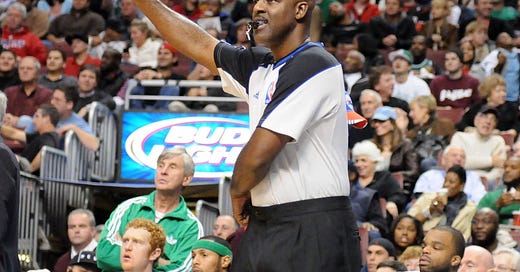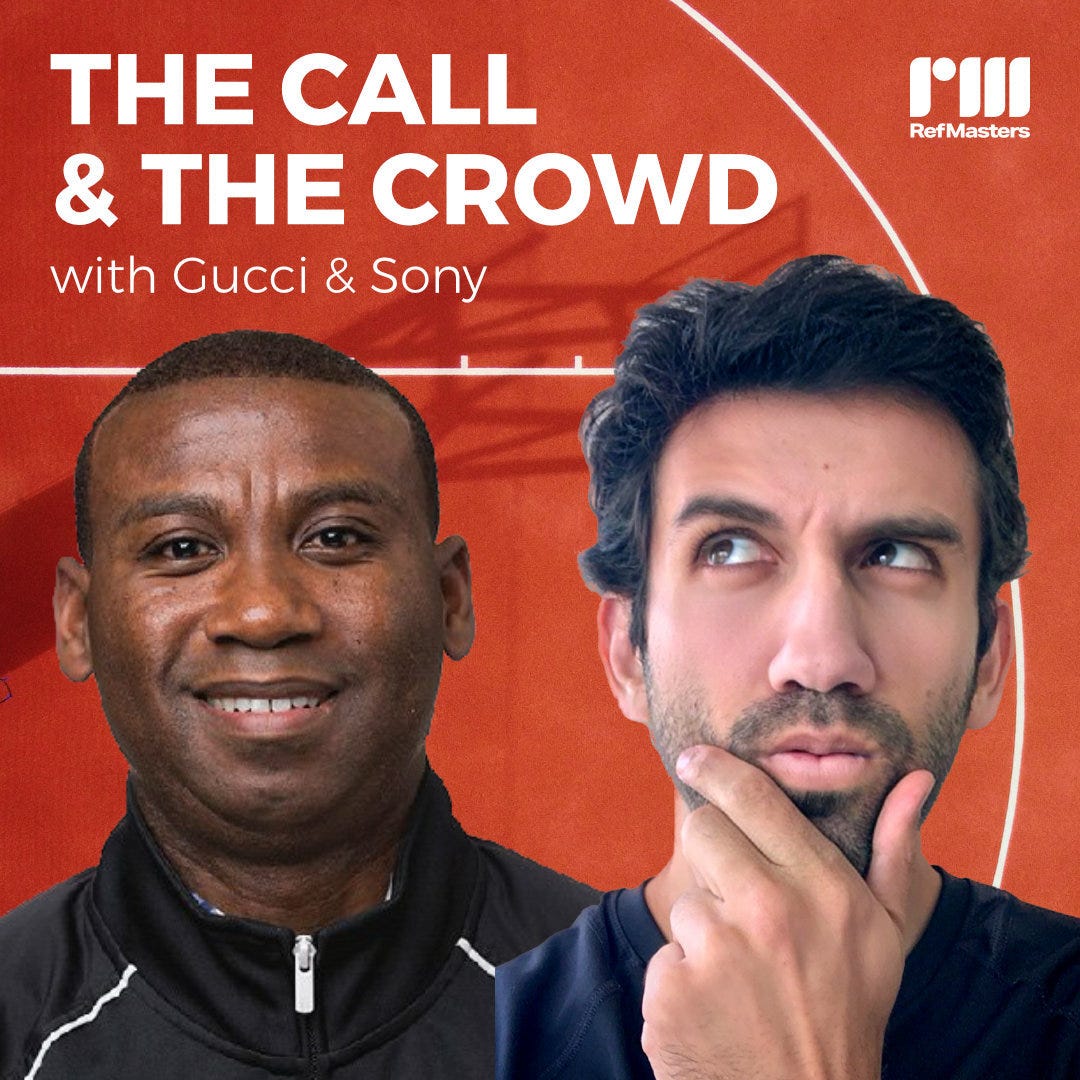Haywoode Workman: From Point Guard to Guardian of the Game
Join Haywoode Workman and the RefMasters team for this free event
When you think of people actively working around pro basketball for 30+ years, it’s a short list. Execs like Pat Riley and Jerry West. Coaches Gregg Poppovich and Doc Rivers. Announcers like Mark Jackson. Whatever it is that Shaq is.
Haywoode Workman may not immediately come to mind.
It’s not everyday you get to interact with someone possessing his wealth of experience. For the RefMasters community, that day is September 12 during a live interview featuring questions submitted by the audience. The event is free, but what you will learn is priceless. Workman’s path from Point Guard to Guardian of the Game is one we can all glean from.
Haywoode’s professional career began when he was drafted by the Atlanta Hawks in the 2nd round of the 1989 NBA Draft. Over the course of his 11-year NBA career, he played for several teams, including the Milwaukee Bucks, Washington Bullets (now Wizards), Indiana Pacers, and Toronto Raptors. His ability to adapt his play to various teams earned him the respect of fans and helped him enjoy a long playing career.
What makes Workman's journey even more impressive is his post-player career. After retiring in 2000, he set his sights on a new challenge: officiating. What started from a bump in with NBA official Bob Delaney in 2001 continued through pro ams in California and stints in the now defunct CBA and NBDL. The transition was not without its obstacles, but Workman's dedication and understanding of the game propelled him forward. By 2006 he was working preseason games in the NBA. In 2008 he became only the 3rd ex-NBA player to join the referee staff full-time.
Since that time, Workman has climbed the ranks. He’s officiated countless high-stakes games, including playoff matchups and All-Star games, showcasing his knowledge and fairness on the court.
It’s no wonder he’s thrived. For all the talk of transitioning into coaches, execs and announcers, the amount of transferable skills between players and referees is eye opening. Point guards in particular share intriguing parallels:
Decision-Making: As a point guard, Haywoode was known for his ability to control the game. He orchestrated plays, set the pace and made critical decisions. As a referee, he exercises sound judgment to interpret the rules, make instantaneous decisions and ensure the game proceeds fairly. Just as he once directed teammates, he now directs the actions of players on the court.
Communication: As a floor general Workman explained plays, motivated teammates and maintained a cohesive unit. In his role as a referee, Workman's communication skills are still on full display. He interacts dynamically with players, coaches and fellow officials. Explaining decisions, defusing potential conflicts, and maintaining clear channels are all part of the job.
Basketball IQ: Workman's playing career honed his basketball IQ, allowing him to anticipate defensive strategies, orchestrate offensive plays and read player tendencies. As a referee his basketball acumen is just as vital. Workman must have an encyclopedic knowledge of the rulebook, interpret it with precision, and make split-second judgments based on his understanding of the game's intricacies.
Composure: Point guards are often thrust into high-pressure situations during crucial moments of a game. Similarly, as a referee, Workman faces high-pressure scenarios in close, high-stakes games. He must make contentious calls, maintain the integrity of the game and stand firm against scrutiny. Poise under pressure is essential.
Leadership: Workman's role as a point guard required him to strike a balance between scoring, distributing the ball and playing solid defense. He had to adapt his style to meet the team's needs and counter opponents' strategies. Now, as a referee, Workman must find the right balance between enforcing the rules and allowing the game to flow. This balancing act ensures fairness and competitiveness while preserving the essence of the sport.
How have your experiences as a player, even if just at lower levels, impacted your approach to the game? What questions do you have for Haywoode? Share your thoughts in the comments and we will highlight a few during next week’s session.
Also, have you checked out our RefMasters podcast on Spotify? Today we launched Episode 2 of “The Call & The Crowd” focused on the fan’s misunderstanding of traveling and a funny assortment of other topics. I hope you’ll check it out, and join us next week.
Until then, go forth and RUN THE GAME.
-Sony Tiwari, Co-Founder and CEO-
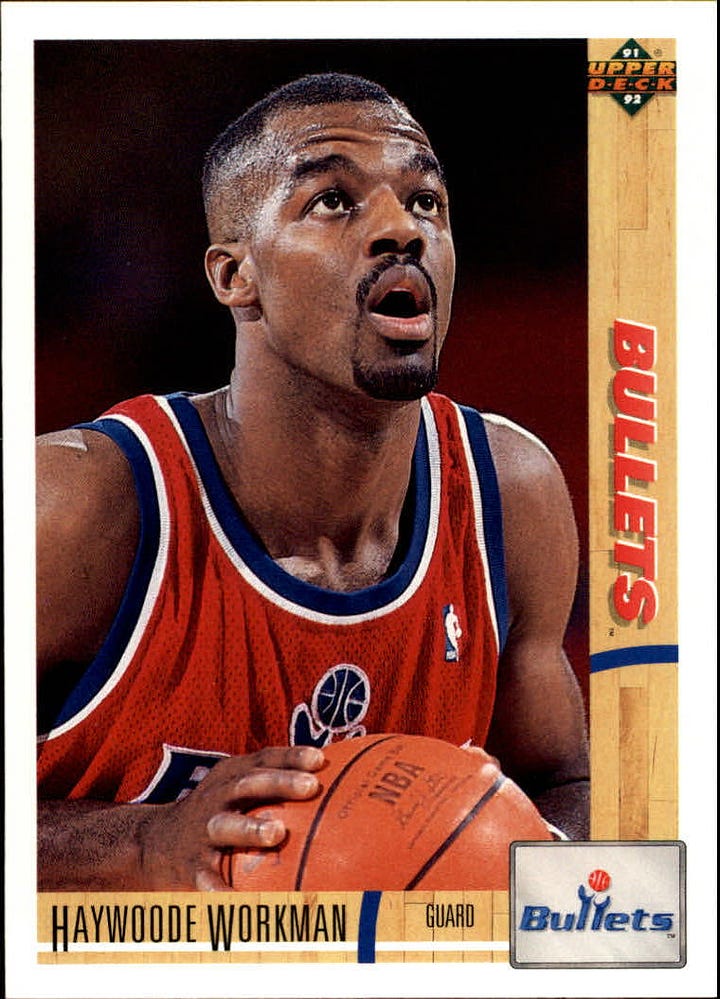
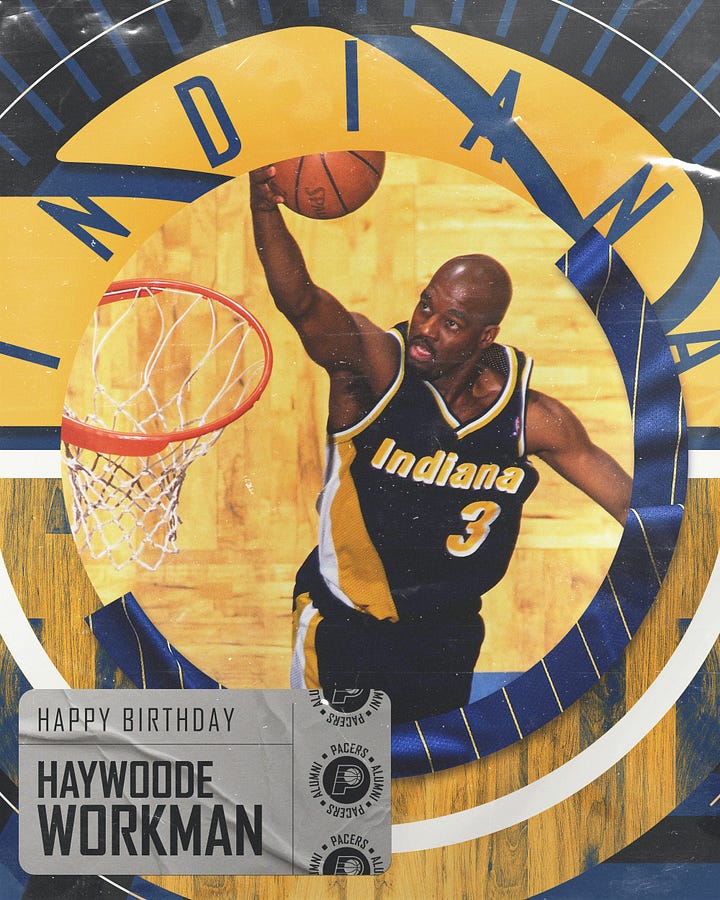
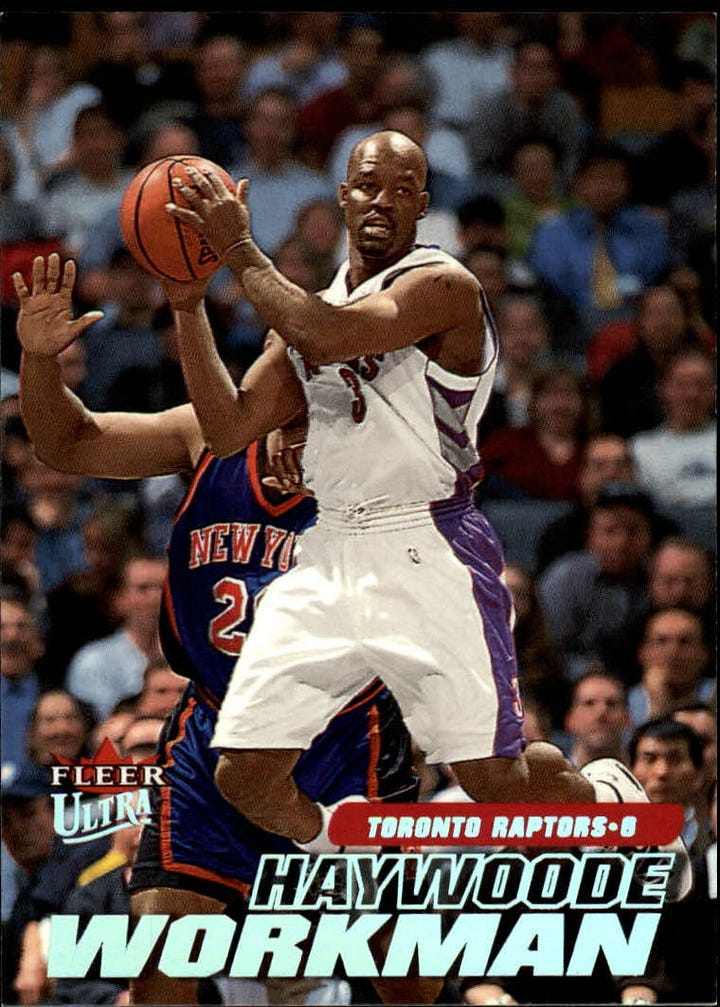
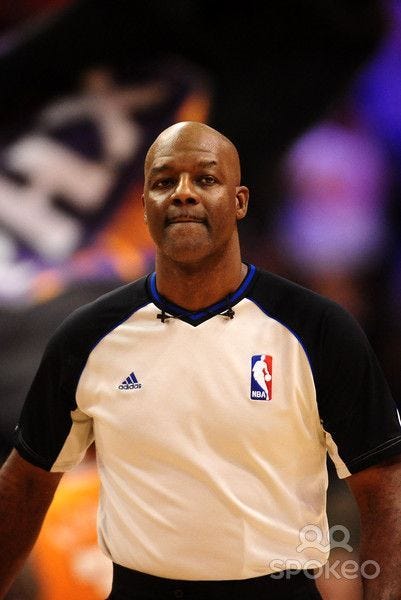
Haywoode Workman: From Point Guard to Guardian of the Game
Join us for this exclusive LIVE interview podcast episode of The Call & The Crowd that will dive into the remarkable journey of Haywoode Workman, a basketball lifer who transitioned from an NBA player to NBA referee. His transition from player to referee provides a unique perspective that few have had the privilege to witness.
WHAT TO EXPECT
An intimate and fun chat about Haywoode's memorable moments in the NBA
Insight into the transition from player to referee
Advice for players looking to level up their knowledge of the rules
A behind-the-scenes look into world of professional sports officials
A unique perspective on the referee/player dynamic
Your chance to ask your own questions about his experiences
Episode 2: Fans Don’t Understand Traveling
In this Spotify podcast episode, we focus on Kane’s theory of fans’ misunderstanding traveling in the NBA game. Plus, a random assortment of topics related to and wholly unrelated to the game. Below is an except where we share our thoughts on next week’s session with Haywoode Workman:
Kane: I'm excited because Haywood got into refereeing just about the same time James and I did. He advanced really quickly having that player background and got into the NBA before we did. So I can't wait to hear a little bit of that journey from him and then just the perspective from both sides. Not too often you get the player and the referee's perspective from one person at that level, both at the professional level. So I'm excited about it.
James: I would love to hear from Haywood about some of the big adjustments he had to make from being a player to a referee because they are also very different. I'm excited to hear what were some of the things when he first started refereeing, where he's like, “wow, I didn't know this.” And then also, if he's got some tidbits for players. We talk about the referee shortage out there in all sports. And one of the great pools of talent are players. Obviously, not everybody can be a professional athlete, that's a very small number of folks. But for a lot of people who play college or played high school, is there some kind of advice he can give them to encourage them to maybe pick up a whistle or go out there on the diamond and start umpiring?
Sony: Yeah, you touched on it, James. I would love to ask Haywood a question like, “Knowing what you know now as a referee, if you could transport back to your time as a player, how would that influence your game?” I would love to get to the bottom of that. And that touches on something else that we're going to talk about more on RefMasters in the coming weeks. As a player and coach, what is your Rule IQ? How can you use your knowledge and understanding of the rules and apply it into the game to improve your performance? I think Haywood is going to be a really awesome conversation talking about his experiences and also just his insight from multiple angles of the game.


